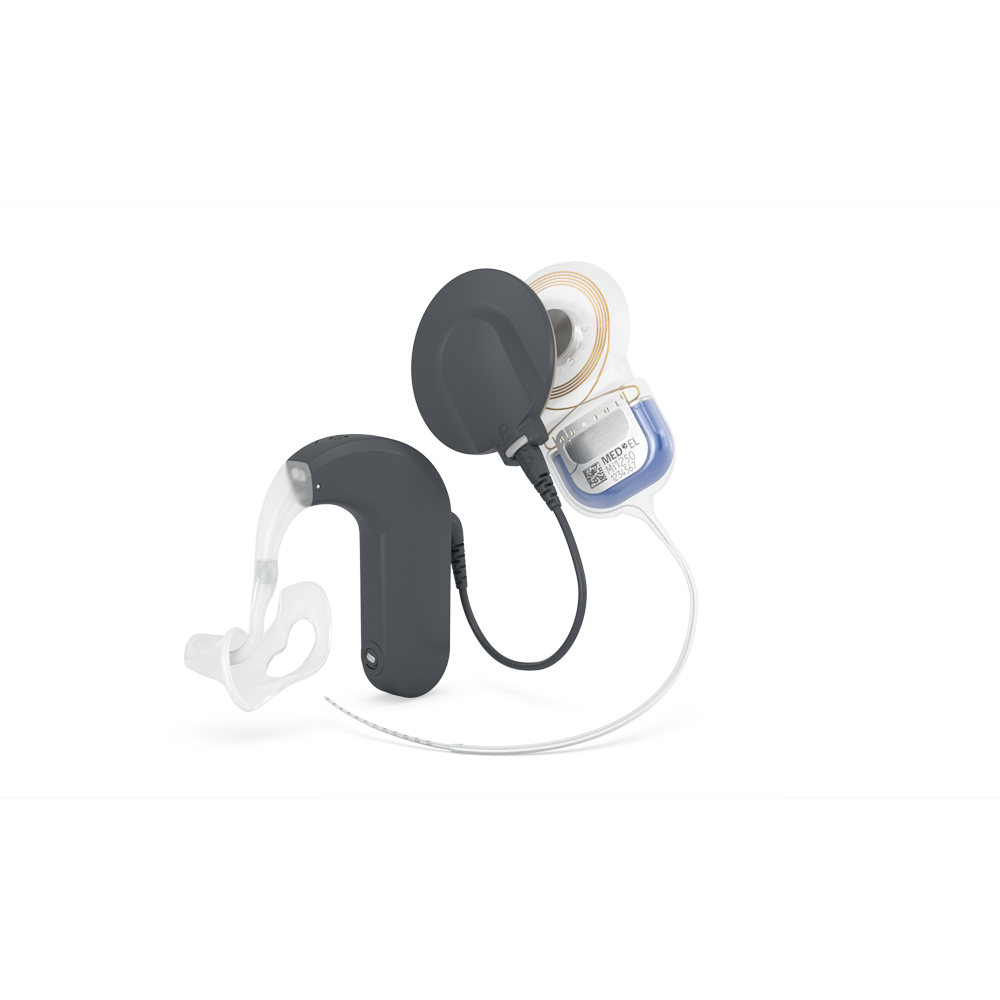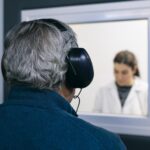
MED-EL
Published Aug 27, 2025
Why You Have Trouble Hearing With Background Noise and What to Do About It
Do you have trouble hearing with background noise? Learn what causes it, how to recognize the signs, and what steps you can take to improve your hearing in noisy places.

Have you ever found yourself pretending to understand what someone just said because background noise made it impossible to hear them clearly? You’re not alone. Trouble hearing with background noise is a common issue that affects people of all ages. It can be both frustrating and isolating.
In this article, we’ll explore why it’s so difficult to hear in crowded restaurants, busy offices, or even at home with the TV on. We’ll also look at what might be causing the problem and what you can do about it.
What Makes It Difficult to Hear in Noisy Environments
You’ve ordered your coffee, found a table, and now you’re catching up with your old school friends. But there’s a problem: All that clattering cutlery, the whirring coffee machine, and background chatter have left you struggling to hear exactly what they are saying.
Cafes, restaurants, and bars are some of the most challenging listening environments. They often have large open spaces with lots of hard surfaces for sounds to bounce off of. That means there’s very little to break up sound waves. When you add in lots of people, music, and clinking plates, it makes understanding speech harder than normal.
This is because of the way our brains process speech. In quiet places, our brains can easily focus on speech and filter out background noise. But in loud environments, our brains have to work a lot harder to separate speech from background noise. For people with hearing loss, the task is harder still, as high-frequency sounds such as consonants typically can’t be heard.
Common Causes of Difficulty Hearing With Background Noise
Hearing well in noisy places can pose a challenge for anyone, but sometimes there are underlying reasons, such as hearing loss or auditory processing disorder.
(High Frequency) Hearing Loss
One of the most common reasons for hearing issues with background noise is hearing loss, particularly in the high-frequency range. High-frequency sounds, including consonants like “f,” “h”, and “s,” help us distinguish speech details. When these sounds are harder to hear, voices can become muffled, especially in noisy environments like restaurants or social gatherings. This is why many people report trouble hearing in a crowded room, even if their hearing seems fine in quiet settings.
Auditory Processing Disorder
Auditory processing disorder isn’t about how well your ears hear, but how well your brain interprets sound. Your brain might have difficulty filtering out irrelevant sounds. This can lead to difficulty hearing in crowds or when several people are talking at once.
Signs You Might Have Hearing Loss
Not sure if what you’re experiencing is normal or a sign of something more serious? Many people dismiss early signs of hearing loss, especially when it only happens in noisy places. But recognizing the symptoms early can help you take action before the problem gets worse.
Signs you might have hearing loss include:
- Frequent misunderstandings, especially in group situations
- Asking people to repeat themselves
- Avoiding social gatherings, especially in larger groups or noisy situations
- Turning up the volume of your phone or TV
- Listening tires you out (listening fatigue)
If you have these signs of hearing loss, it’s important to contact your doctor so they can assess your hearing.
What You Can Do to Hear Better in Background Noise
If you are struggling to hear in background noise, there are steps you can take to address the underlying causes. There are also strategies you can follow to help mitigate the effects.
Visit a Doctor or an Audiologist
If you have any signs of hearing loss, it’s essential to visit a doctor or hearing professional straight away. They can determine what might be causing you to struggle hearing with background noise or why you have difficulty hearing in crowds. Your doctor can then recommend the right solution for your situation.
Use Hearing Aids
If your audiologist diagnoses mild-to-severe hearing loss, they might recommend a hearing aid. Hearing aids work by amplifying sounds. In other words, hearing aids make sounds louder. Many hearing aids also have advanced technology that adjusts to noisy environments and enhances speech clarity.
Consider a Hearing Implant
If you have severe-to-profound hearing loss, your doctor might recommend a cochlear implant. MED-EL’s cochlear implants use directional microphones and noise reduction technology to offer comfortable hearing in loud environments.
If you have high-frequency hearing loss, an electric acoustic stimulation system might also be an option. This combines cochlear implant and hearing aid technology to get the most out of your natural remaining hearing.

Cochlear Implants
Discover More About CIs
Electric Acoustic Stimulation
Discover More About EASTrain Your Brain
Auditory training exercises can help your brain process sounds, making it easier for you to focus on conversations in noisy settings.
Find Communication Strategies
Straightforward strategies can make hearing voices in background noise easier. For example, pick restaurants with soft furnishings when dining out. Or seat yourself as close to the speaker as possible at lectures or in meetings.
Next Steps: Trouble Hearing With Background Noise
If you’re struggling to hear with background noise, you don’t need to avoid your favorite café or stop attending conferences. Your first step is to visit a doctor, who can find out any underlying causes. The sooner you know what’s causing you to struggle to understand people in noisy environments, the sooner you can start addressing the problem.
Even if the cause is hearing loss, you have several treatment options available to you. At MED-EL, we offer solutions for every type of hearing loss. If you’re looking for advice or reassurance, our product experts will be happy to advise you.
Solutions for Hearing Loss
Want to find out more about cochlear implants or electric acoustic stimulation? Your local MED-EL team is ready to guide you through our hearing loss solutions.
Get In TouchReferences

MED-EL
Was this article helpful?
Thanks for your feedback.
Sign up for newsletter below for more.
Thanks for your feedback.
Please leave your message below.
Thanks for your message. We will reply as soon as possible.
Send us a message
Field is required
John Doe
Field is required
name@mail.com
Field is required
What do you think?
© MED-EL Medical Electronics. All rights reserved. The content on this website is for general informational purposes only and should not be taken as medical advice. Contact your doctor or hearing specialist to learn what type of hearing solution suits your specific needs. Not all products, features, or indications are approved in all countries.

MED-EL

MED-EL


